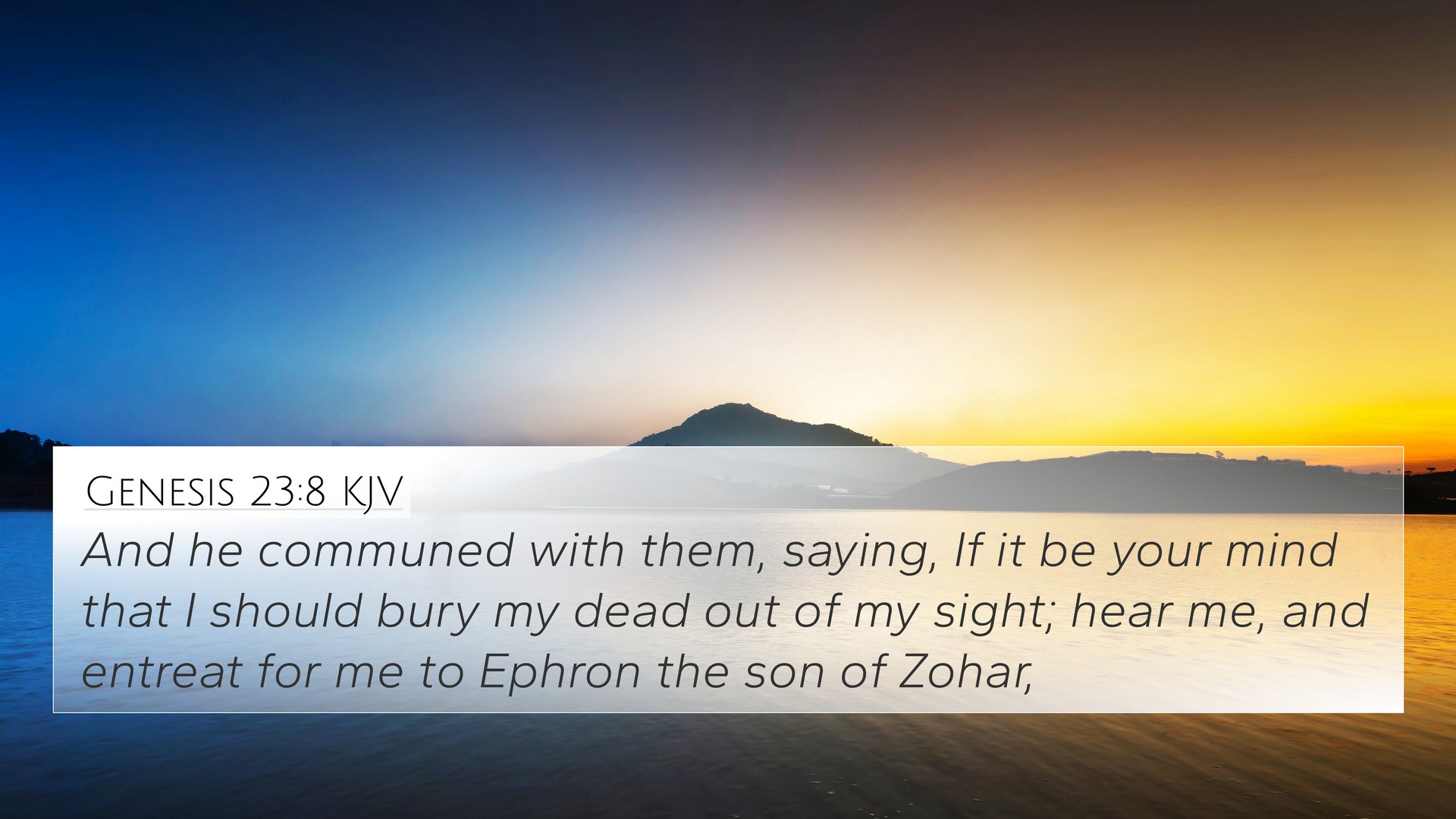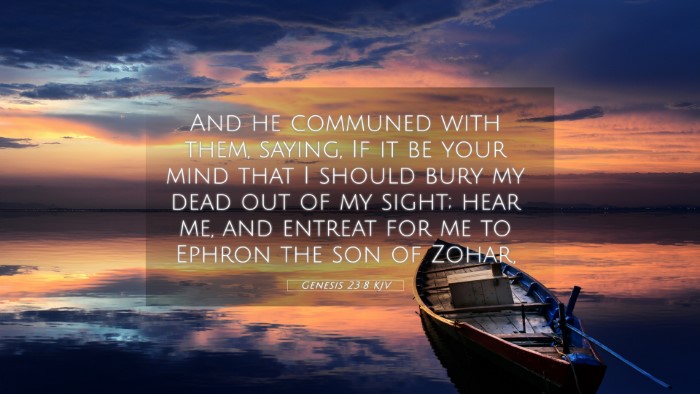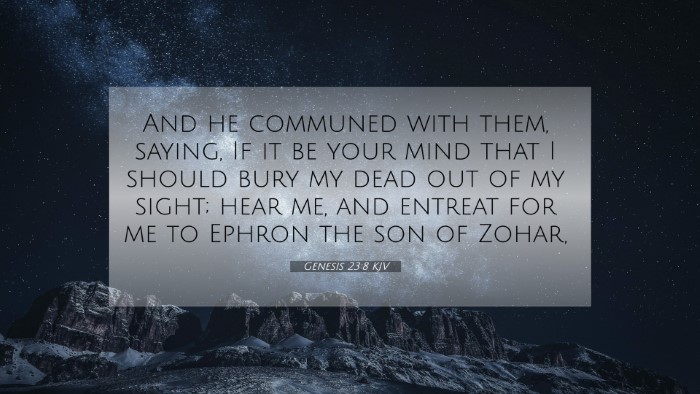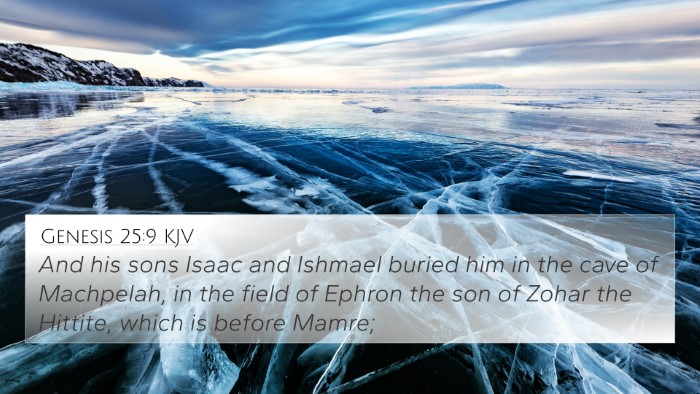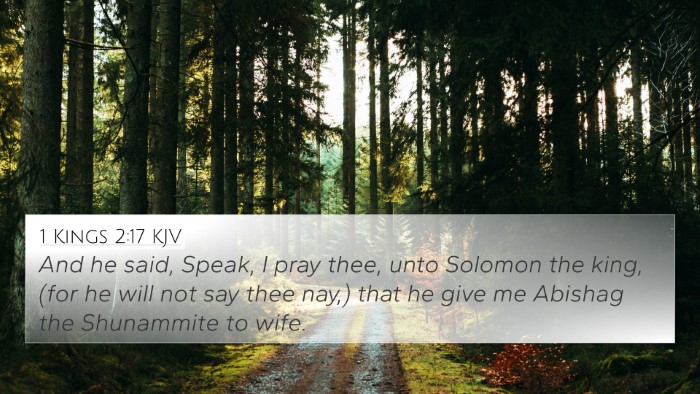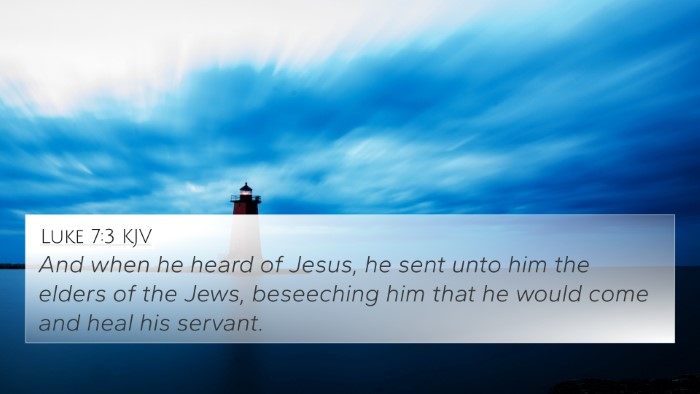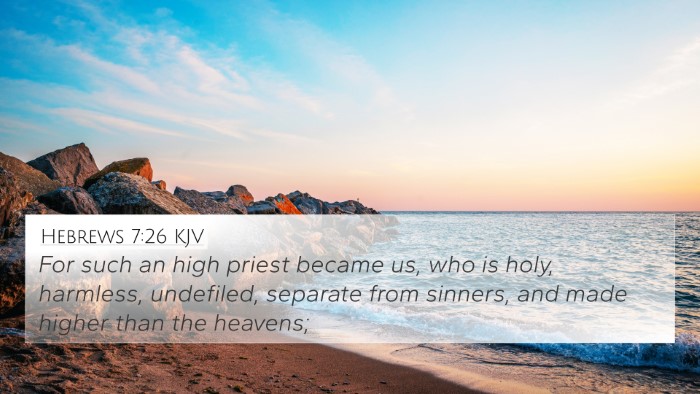Understanding Genesis 23:8
Genesis 23:8 states, "And he said unto them, If it be your mind that I should bury my dead out of my sight, hear me, and entreat for me to Ephron the son of Zohar." This verse reflects a significant moment in the narrative of Abraham, showcasing his intentions and considerations regarding the burial of his wife, Sarah. This request to Ephron illustrates Abraham's need for a lawful process and respectful treatment of the deceased.
Analysis from Commentaries
Insights from Matthew Henry, Albert Barnes, and Adam Clarke provide a layered understanding of this passage. Abraham's approach is characterized by respect and politeness, indicative of his status and character.
Respectful Negotiation
Abraham's request is couched in humility and communal respect. He approaches the Hittites with the understanding that he is a stranger in their land, thus reflecting a profound cultural sensitivity. Matthew Henry emphasizes this by pointing out that Abraham does not take ownership for granted; he seeks their goodwill, showing the importance of relationships in such dealings.
The Importance of Land and Burial
The act of acquiring a burial plot is significant in biblical terms, symbolizing both belonging and a lasting legacy. Albert Barnes notes that Abraham's concern for a burial place was crucial not only for expressing his love for Sarah but also for affirming his eventual claim to the land of Canaan, which God had promised him.
Cultural Context
Adam Clarke elaborates on the cultural implications of Abraham's request. In ancient cultures, the burial site was a revered space, often marking one’s identity and place within the community. Abraham's initiative to purchase a site instead of accepting a gift is seen as an affirmation of his faith in God's promise of the land, setting a foundation for future generations.
Thematic Bible Verse Connections
This verse can be connected to various themes within the Scripture, relating not only to matters of burial but also to the broader context of God's promises and covenant with Abraham. Below are significant cross-references that amplify its meaning:
- Genesis 17:8: God promises the land to Abraham and his descendants.
- Genesis 50:13: The burial customs of the patriarchs showing respect for the dead.
- Matthew 8:20: Jesus references the significance of having a place to rest, paralleling the idea of a final resting place.
- Acts 7:16: Stephen recounts the burial of the patriarchs, linking Abraham's actions to the heritage of God's people.
- Hebrews 11:9-10: The faith of Abraham in looking forward to the city designed by God, indicating his vision beyond mere temporal possession.
- 1 Kings 2:10: The importance of burial location in maintaining lineage and legacy.
- John 11:34: Jesus demonstrating compassion at a burial, echoing the themes of love and respect for the dead.
Practical Applications
Applying the lessons of Genesis 23:8 can encourage believers to approach sensitive matters in life with humility, respect, and cultural awareness. Furthermore, the emphasis on burial signifies the importance of recognizing our mortal nature and the lasting impact of our actions on future generations.
Tools for Bible Cross-Referencing
To delve deeper into the connections between Bible verses, consider utilizing various tools such as:
- Bible Concordance: A comprehensive tool for finding cross-references and studying related scriptures.
- Bible Cross-Reference Guide: A structured approach to explore thematic connections and relevancies.
- Cross-Referencing Bible Study: Methods that promote understanding of Biblical themes through identifiable links.
- Comprehensive Bible Cross-Reference Materials: Resources that offer exhaustive networks of related scriptural texts for deeper exploration.
Conclusion
Genesis 23:8 encapsulates layers of cultural significance, personal emotion, and divine promise intertwined in the narrative of Abraham. The thorough examination of this verse brings to light not just the text’s immediate implications but also its broader thematic connections across Scripture. Engaging with these layers enriches our understanding and invites us to reflect on our own legacy and the importance of respectful relationships in our journeys of faith.
Reflective Questions
- What can we learn from Abraham’s respectful approach to negotiation?
- How does understanding this verse enhance our perception of burial customs in Biblical times?
- In what ways can we establish strong relationships with those in our communities when faced with sensitive matters?
- How might the themes of legacy and divine promise impact the decisions we make today?
